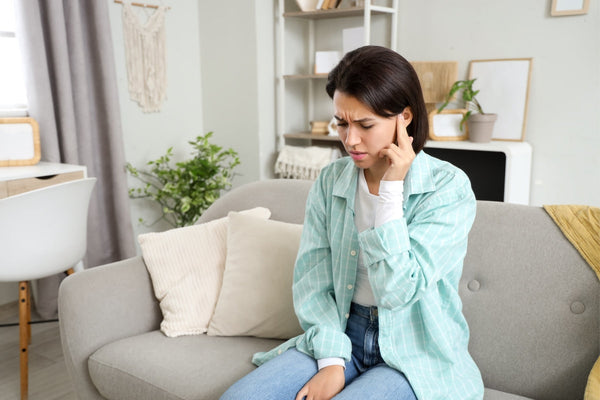
Otosclerosis is a condition that affects the tiny bones in the middle ear, leading to gradual hearing loss. It happens when abnormal bone growth develops around the stapes - one of the three small bones that help transmit sound from the outer ear to the inner ear. As the bone becomes fixed in place, sound vibrations can no longer move freely, making it harder to hear.
Although otosclerosis cannot be prevented, it can be effectively managed with the right treatment and professional hearing care. At Leightons, our audiologists can help detect the signs of otosclerosis, monitor your hearing, and guide you to the right medical support if needed.
What is otosclerosis?
In a healthy ear, the stapes vibrates with sound waves, passing these vibrations to the cochlea, where they’re converted into signals for the brain.
When otosclerosis develops, abnormal bone growth around the ossicles causes it to stiffen and lose mobility. This limits sound transmission and gradually reduces hearing sensitivity. The condition usually begins in one ear but can affect both over time.
Otosclerosis is more common in adults between the ages of 20 and 45 and slightly more prevalent in women
What causes otosclerosis?
The exact cause of otosclerosis isn’t fully understood, but several factors can increase the risk:
- Genetics - The condition often runs in families.
- Viral infections - Such as measles, which can affect bone development in the ear.
- Hormonal changes - Pregnancy or hormonal fluctuations may accelerate progression.
- Autoimmune conditions - The body’s immune system may contribute to inner ear inflammation.
Otosclerosis is not caused by lifestyle factors or noise exposure, but understanding the risk factors can help with early detection and treatment.
Common symptoms of otosclerosis
Otosclerosis usually develops slowly, so symptoms may go unnoticed at first. Common signs include:
- Gradual hearing loss, often starting in one ear
- Difficulty hearing low-pitched sounds or whispers
- Tinnitus (ringing, buzzing, or roaring sounds in the ear)
- Better hearing in noisy environments
- Occasional balance problems or dizziness
Because symptoms develop gradually, regular hearing tests are essential for early detection.
How is otosclerosis diagnosed?
If you’re noticing hearing changes, an audiologist can perform a free hearing assessment to measure how well sound travels through your ears. If conductive hearing loss is detected, you may be referred to an ENT specialist for further testing, which might include:
- Audiogram - to measure hearing thresholds.
- Tympanometry - to check middle ear function.
- CT scan - in some cases, to view the bone structure of the middle ear.
A confirmed diagnosis allows for tailored treatment options and ongoing hearing management.
Treatment and management of otosclerosis
There are several effective treatments for otosclerosis, depending on its severity and how much it affects your hearing:
- Hearing aids: Amplify sound to overcome the conductive hearing loss. Many people find these extremely effective.
- Stapedectomy or stapedotomy surgery: A delicate operation performed by an ENT specialist to replace or modify the stapes bone, to restore a better sound transmission which can help with hearing loss.
- Regular hearing checks: To monitor changes and adjust hearing aids if necessary.
- Protecting your hearing: Avoiding loud noise exposure and maintaining general ear health.
With appropriate care, most people with otosclerosis maintain excellent hearing function.
Living with otosclerosis
Otosclerosis can impact daily life, but early diagnosis and the right treatment make a significant difference. Many people successfully manage their hearing with hearing aids or surgical treatment. Emotional support and hearing care guidance can also help reduce the frustration or isolation sometimes linked to hearing loss.
If you’ve noticed gradual hearing changes, don’t ignore them. A professional assessment can help identify whether otosclerosis - or another treatable condition - is the cause.
How Leightons can help
At Leightons, our friendly audiologists provide comprehensive free hearing tests and ear health checks to identify signs of otosclerosis or other hearing conditions. We can:
- Test your hearing to determine if otosclerosis may be affecting you.
- Fit and fine-tune hearing aids to support clear, comfortable hearing.
- Refer you to an ENT specialist for diagnosis or surgical consultation if needed.
- Offer ongoing support and aftercare to help you manage your hearing long-term.
We’re here to help you understand your hearing, regain confidence, and enjoy life with clear sound once again.
Book your free hearing assessment today and take the first step toward better hearing health.







